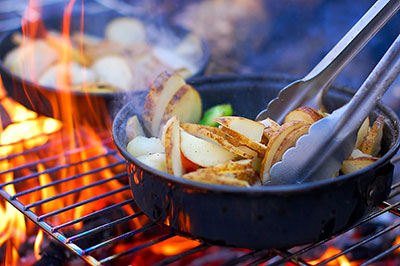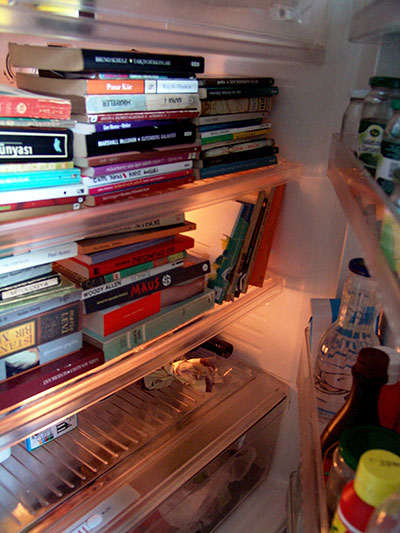Lou Manna gives a nice overview of food photography. Lots of practical tips are included and lots of examples fabulously illustrate the mastery of his photography. The lots of pictures make the book easy to read and visually appealing. He explains in detail what is needed to create a stunning picture. How to start, which equipment you need, how to find the right people to work with …
An example tip for composition I found very interesting:
Spiral: People in Western cultures read from left to right, and we’ve trained our eyes to scan other things, including images, in a similar left-to-right sweep. Our eyes naturally tend to scan pictures in clockwise fashion and then spiral in to the area that has the whitest and brightest colors at its center.
Other possible composition options include lowercase a, bullseye and the almighty rule of thirds.
Another thing that i got acknowledged by Lou Manna is the fact, that I definitely need to buy a wide angle lens to get on with my photography ambitions. This lenses with sharp depth of field create the look that I like best in low distance food photographs.
NOTE: Wide angle lenses make elements in the foreground appear larger than those in the background, and exaggerate distance and perspective. Telephoto lenses, on the other hand, have an opposite effect. They compress distance and make objects in the background appear similar in size to objects in the foreground. Remember that depth of field is shallower with telephoto lenses.
Amateur food photos often look boring and fail to transfer the feeling of taste. Not only lighting is important to increase the quality of your food photos, Lou Manna also gives important tips for highlights:
Using mirrors and backlights helps to add dimension, gives more shadow detail, and creates specular highlights on the food or setting. Without these highlights, food photographs lack life and dimension. With them, food can sparkle like jewels. Specular highlights attract attention to the food’s freshness, color, and texture, giving it appetite appeal.
Of course a book can never teach you all the techniques to achieve great food photography results (I’ve already been trying to learn photography through books and video training for a long time and it doesn’t work, believe me). But Lou Manna’s books gives a great overview of the topic and increases the appetite not only for great food but also to become a great photographer. It definitely inspired me to plan the purchase of the wide angle lense that has been sitting on my list for years. Maybe you’ll see some of my own photographs on this blog soon.
More information: Lou Manna’s website (where you’ll find a collection of wonderful pictures, newer and I might say greater than the ones included in the book) – Lou Manna’s blog – Food photo library – Wikipedia

